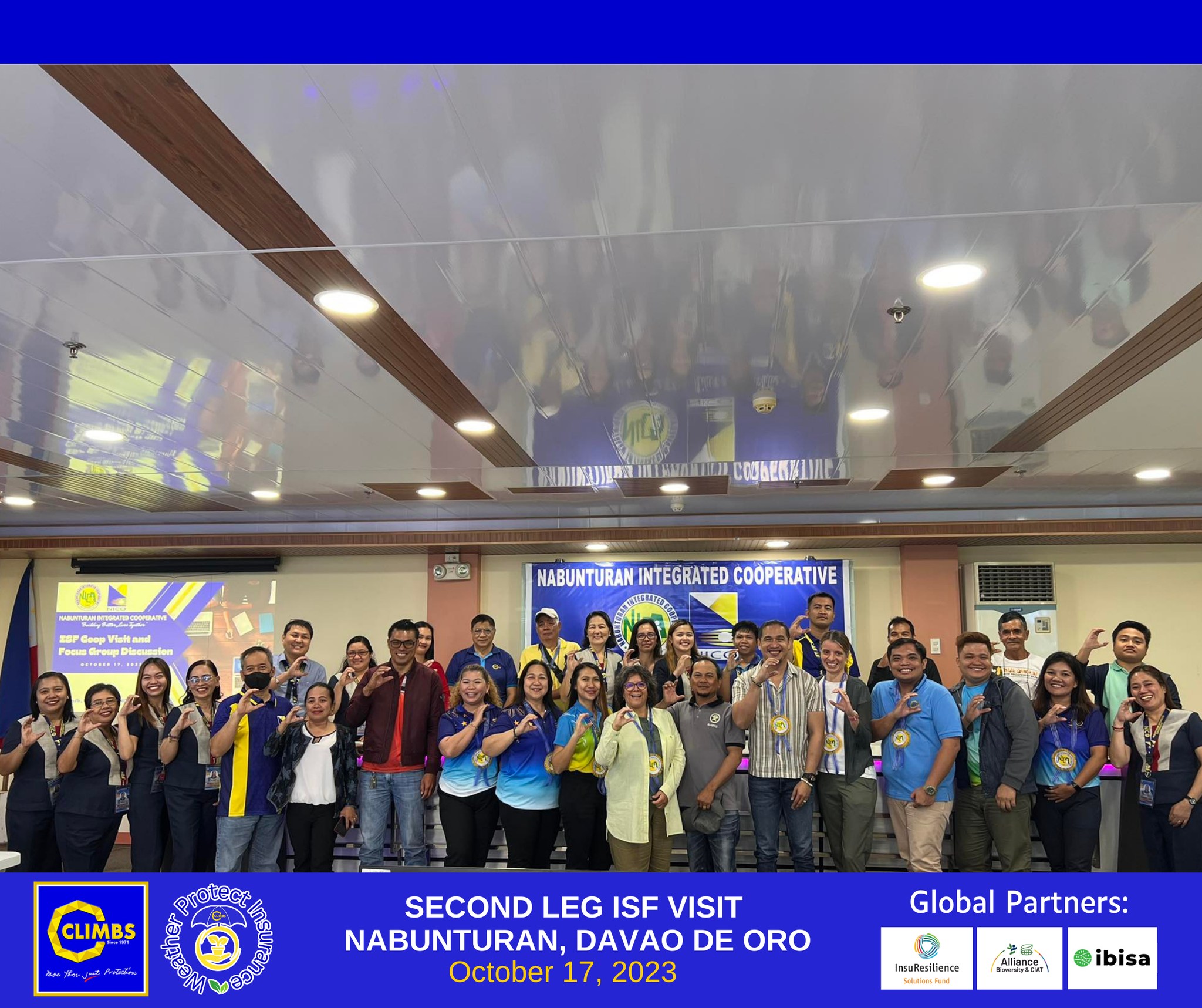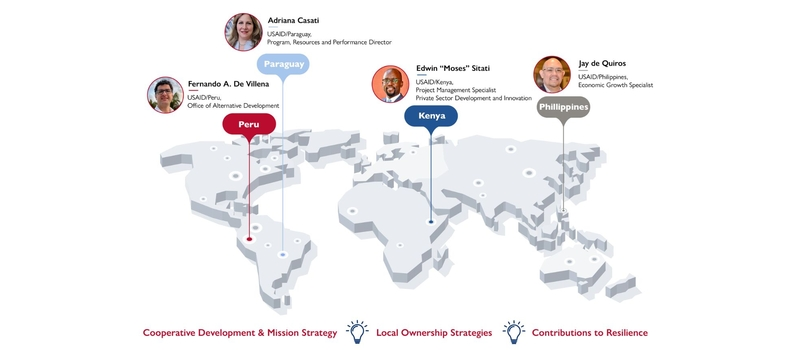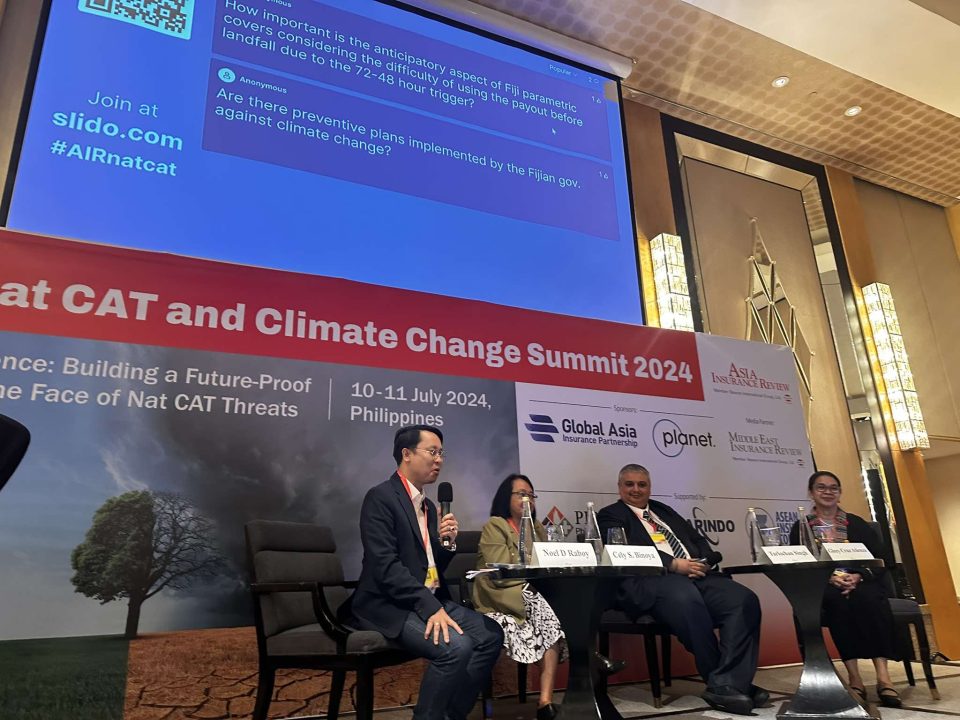
CLIMBS welcomes ISF delegates, coop visits
October 23, 2023
CLIMBS wins back-to-back title for Miss Coop Region 10
November 3, 2023In a recent published article on Agrilinks.org, Emily Varga, the senior cooperative development advisor, USAID Bureau for Development, Democracy, and Innovation (DDI)/Local, Faith, and Transformative Partnerships (LFT), Betsy Ness-Edelstein, the evaluation team lead, Abt Associates, and Sarah Carson, the evaluation research coordinator, Abt Associates, compiled a series of perspectives extracted from the performance evaluations of four USAID specialists from Peru, the Philippines, Kenya, and Paraguay on the recent Cooperative Development Program (CDP), which aims to support initiatives that advance the cooperative sector in the respective countries where USAID is located.
One of the specialists, Mr. Jay de Quiros, an economic growth specialist from USAID Missions Philippines, briefly cited CLIMBS Life and General Insurance Cooperative’s Weather Protect Insurance (WPI) as an example of how the development of crop insurance products acts as a tool for resilience among farmers and the integration of resilience frameworks into future activity designs.
“This enables faster payouts without necessitating slow and cumbersome field validation done in traditional insurance schemes,” he stated during the interview when asked about the role of cooperatives and credit unions in how they can contribute to resilience in the country.
The Weather Protect Insurance, which was created in 2021, is the first parametric insurance that guarantees that farmers and cooperative members will be able to receive payouts for the risk caused by disaster or calamity through various trigger parameters that measure rainfall and wind speed.
When it comes to enhancing the economic situation of small-scale farmers, improving agriculture productivity, and promoting sustainable farming practices, projects like the WPI provide a practical example of how the cooperative sector plays a crucial role in revitalizing the agriculture industry through these projects by starting at the grassroots level and using a solutions-based bottom-up approach when it comes to resolving issues brought on by tragedy or climate change.




